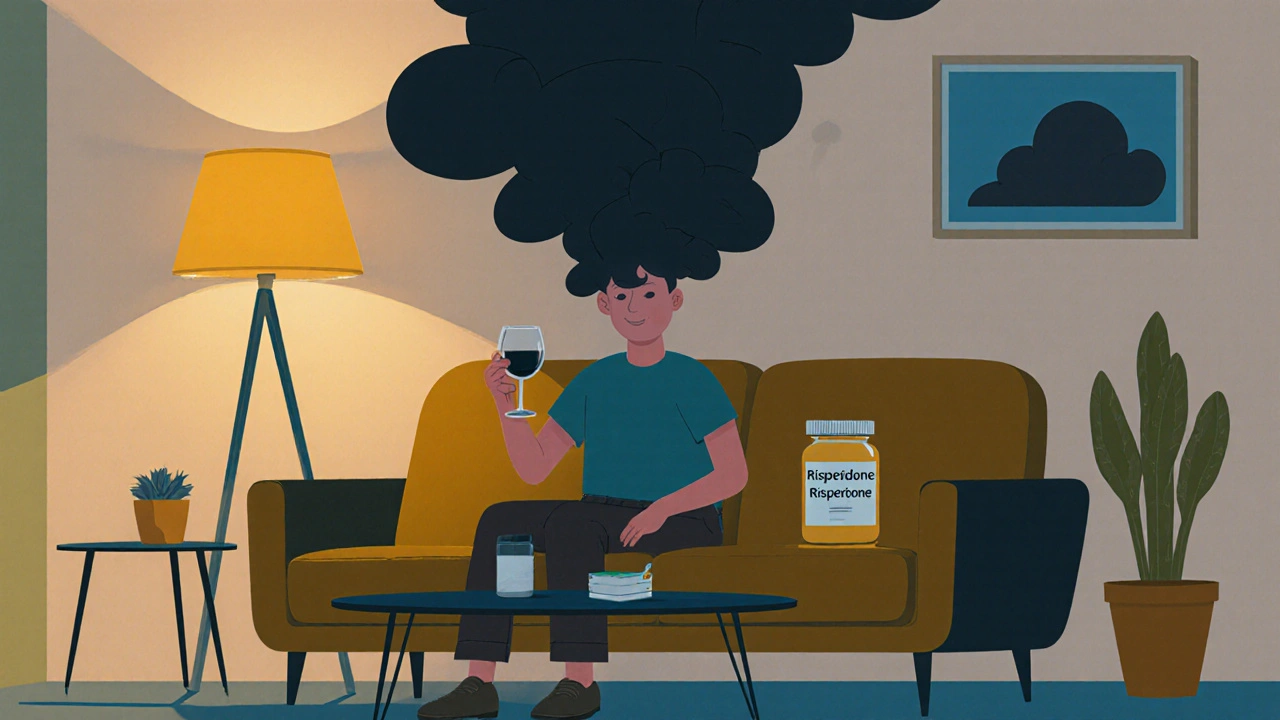Risperidone Interactions: What You Need to Know Before Taking It
When you take risperidone, an antipsychotic medication used to treat schizophrenia, bipolar disorder, and irritability in autism. Also known as Risperdal, it works by balancing brain chemicals—but it doesn’t work alone. Many other drugs, supplements, and even foods can change how it acts in your body, sometimes dangerously.
One of the biggest risks comes from combining risperidone with other central nervous system depressants, substances that slow brain activity, including alcohol, benzodiazepines, sleep aids, and some painkillers. Together, they can cause extreme drowsiness, slow breathing, or even loss of consciousness. If you’re on a sleep aid like zolpidem or a muscle relaxant like cyclobenzaprine, your doctor needs to know—because mixing them with risperidone isn’t just risky, it’s often avoidable.
Another key concern is CYP2D6 inhibitors, drugs that block the enzyme responsible for breaking down risperidone in the liver. Common ones include fluoxetine, paroxetine, and quinidine. If you’re taking any of these, risperidone can build up in your system, raising your chance of side effects like tremors, rapid heartbeat, or involuntary movements. A simple blood test can show if your body is processing risperidone too slowly—and your pharmacist can flag these clashes before you even fill the prescription.
Don’t overlook blood pressure medications, especially those that lower blood pressure like clonidine or beta-blockers. Risperidone itself can drop your blood pressure, especially when you stand up. Add another blood pressure drug, and you might feel dizzy, faint, or fall. This isn’t just about discomfort—it’s about safety. Many people on risperidone are older adults, and falls can lead to serious injuries.
Even over-the-counter stuff matters. Cold medicines with dextromethorphan or antihistamines like diphenhydramine can add to sedation and confusion. Herbal supplements like St. John’s wort or kava can interfere with how risperidone is absorbed. And while you might think grapefruit juice only affects cholesterol drugs, it can also raise risperidone levels in some people. Always check with your pharmacist before trying anything new, even if it’s labeled "natural."
There’s no one-size-fits-all answer here. What’s safe for one person might be dangerous for another, depending on age, liver health, other meds, and genetics. That’s why keeping a full list of everything you take—prescription, OTC, supplements, and even occasional use—isn’t just good advice, it’s essential. Your doctor can’t help you avoid bad interactions if they don’t know what you’re using.
The posts below give you real-world examples of how risperidone interacts with other psychiatric drugs, pain relievers, and common supplements. You’ll see what happens when people mix it with antidepressants, what warnings the FDA has issued, and how to spot early signs of trouble. No fluff. Just clear, practical info you can use to talk to your doctor or pharmacist with confidence.

Risperidone and Alcohol: What Happens When You Mix Them
Mixing risperidone and alcohol can cause dangerous side effects like extreme drowsiness, low blood pressure, and impaired coordination. Learn why even one drink can be risky and what safer alternatives exist.
Read More